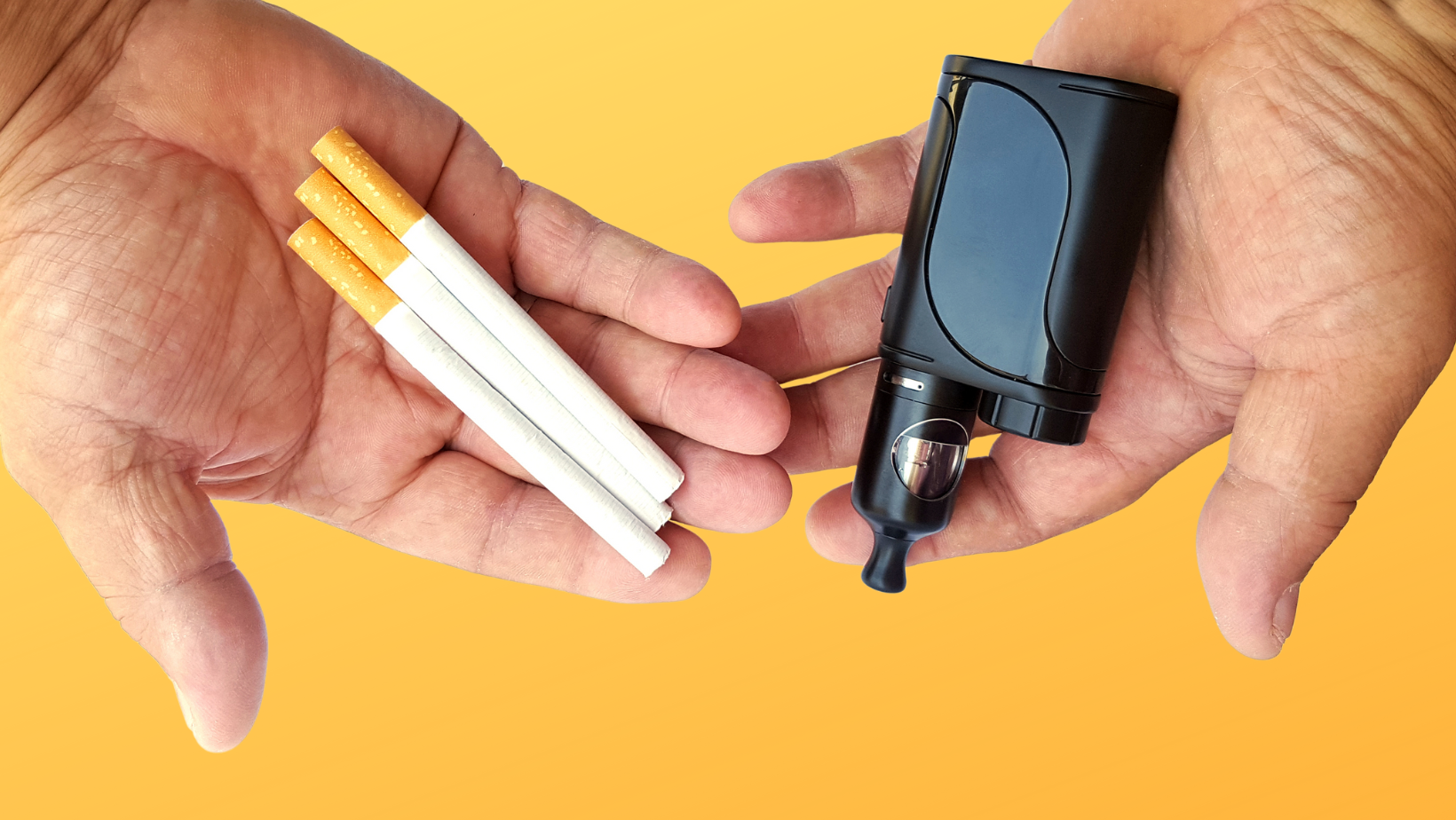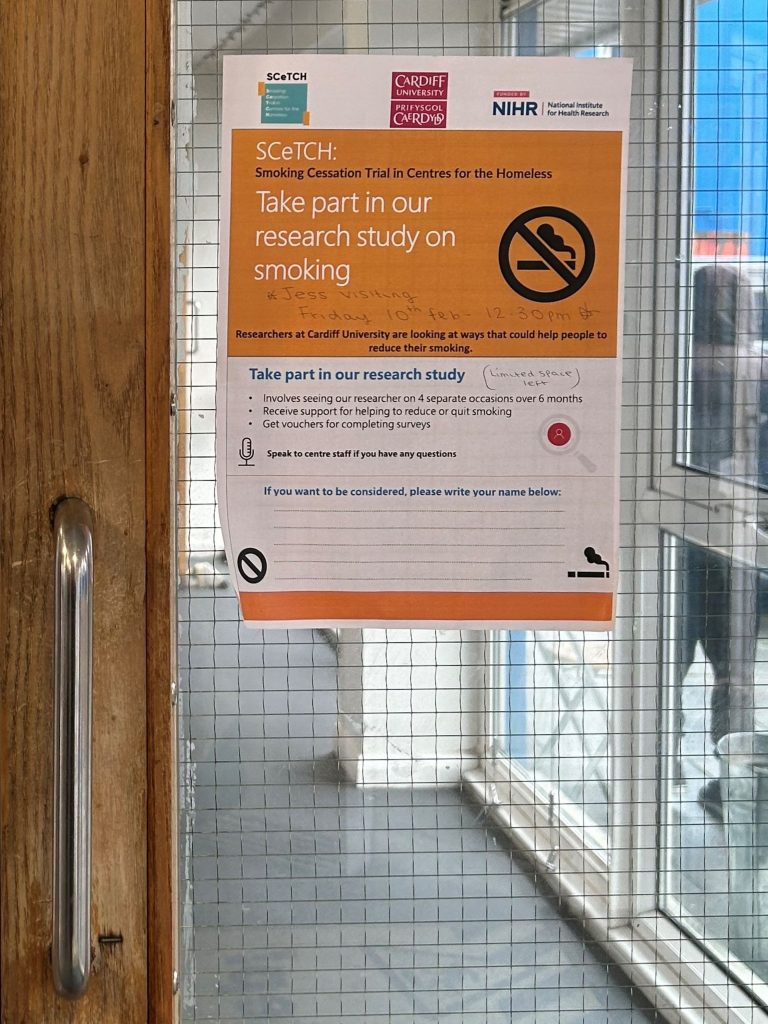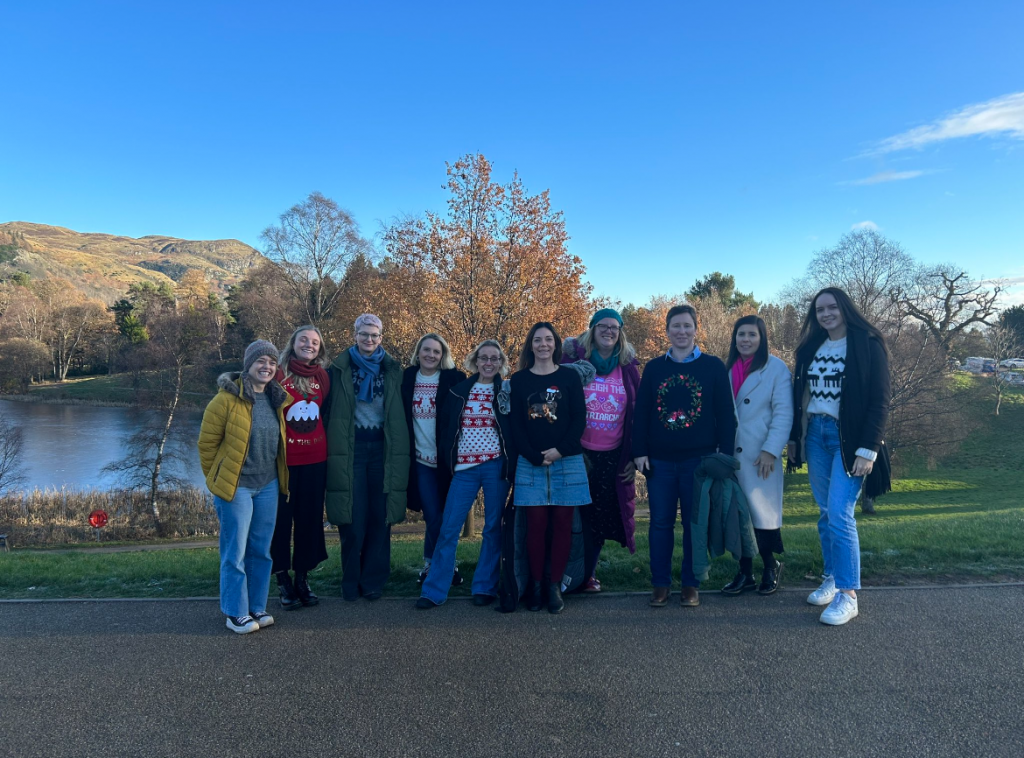
DECIPHer Research Assistant Jess Lennon updates on the SCeTCH project, which asks: Could providing free e-cigarette starter kits in homeless services aid smoking cessation?

Up to 82% of people experiencing homelessness smoke, compared with around 14% of the wider population. E-cigarettes are the most popular cessation aid but those experiencing homelessness often cannot afford the initial start-up cost.
SCeTCH is a multi-centre cluster randomised controlled trial that aimed to compare provision of an e-cigarette starter kit to usual care in a sample of homeless services.
In early 2022, I wrote a blog introducing the project – you can read that here: Could having free e-cigarettes help people experiencing homelessness to quit smoking? And now, with data collection complete, it’s a good time to update on its progress.
Time to take stock
- Data collection was completed in December 2023.
- 32 centres across England, Wales and Scotland took part, we trained 220 members of staff and recruited 477 participants.
- Analysis is underway and our team has been reflecting on the many lessons and challenges along the way.
Challenges and changes

SCeTCH was originally designed to be undertaken in day centres for those experiencing homelessness but in response to the covid-19 pandemic the homeless services in Wales predominantly shifted to a residential model of support. We therefore had to adapt to this and expand our recruitment parameters to include residential centres.
Being a friendly face, explaining the trial to them directly and developing trusting non-judgemental relationships was key.
Unfortunately, though not surprisingly, the centres taking part in the trial experienced many challenges and resource issues including lack of funding and staff shortages. This may have resulted in many potential centres deciding not to take part in the trial and we certainly faced some challenges in centres with staff shortages or a high turnover of staff.
Building relationships
Individuals experiencing homelessness are often under-represented in research, and this population can understandably be cautious of outside individuals and services based on past experiences.
Recruitment and follow up visits meant that I spent a considerable amount of time at the centres and with the residents, and as a result developed friendly and trusting relationships with many. This resulted in participants being more likely to return for follow up assessments (as it was also an opportunity for a catch up). Other residents also helped when I was struggling to make contact with some individuals, which was a common occurrence with many living transient lives.
Being a friendly face, explaining the trial to them directly and developing trusting non-judgemental relationships was key.
Many of our participants lived complex and chaotic lifestyles, therefore expecting them to attend appointments arranged weeks in advance with us was not realistic.
A flexible and pragmatic approach
It was important to consider the unique needs of those taking part in the trial when recruiting and following up with participants. Our centres were varied and so too were the participants.
While we had a defined protocol to ensure the trial was carried out in the same way in all centres, it was important to be flexible and pragmatic within the confines of this.
Many of our participants lived complex and chaotic lifestyles, therefore expecting them to attend appointments arranged weeks in advance with us was not realistic. There were some participants with mobile phones who found text message reminders about follow up visits helpful, but many did not. Instead what worked well was liaising with staff or more commonly attending the centre at different times, knocking on bedroom doors or waiting for participants to return (there was a lot of waiting!)

Final reflection
Being part of SCeTCH has been a unique and unforgettable experience and while we await the final results it has been great to reflect on my own involvement with the trial.
SCeTCH has challenged the perception we often hear in research or services aimed at individuals with high health and social challenges as being ‘hard to reach populations’. Our participants had very difficult lives and faced many daily challenges but they made it clear that they wanted to quit smoking, we recruited easily and had good follow up rates.
Our participants were not ‘hard to reach’ – we as researchers just have to understand and be flexible to the unique needs of this population if interventions like this are to be a success.
And finally, some positive quotes reflecting the rewarding nature of this study:
‘Thank you for fitting in so well with the centre while carrying out your research, I know the clients liked seeing you each time even if they weren’t participating in the study!‘
Centre Manager
‘Thank you to everyone in the research team for the opportunity to participate in the study.‘
Participant
Further information and publications:
Paper: Evaluating the effectiveness of e-cigarettes compared with usual care for smoking cessation when offered to smokers at homeless centres: Protocol for a multi-centre cluster randomised controlled trial in Great Britain Cox, S., Bauld, L., Brown, R., Carlise, M., Ford, A., Hajek, P., et al. Addiction (2022)
Paper: Exploring how an e-cigarette intervention influenced tobacco smoking behaviour in people accessing homelessness services: Findings from the SCeTCH trial process evaluation Allison Ford, Lauren McMillan, Kirstie Soar, Francesca Pesola, Caitlin Notley, Rachel Brown, Emma Ward, Bethany Gardner, Anna Varley, Charlotte Mair, Jessica Lennon, Janine Brierley, Amy Edwards, Danielle Mitchell, Debbie Robson, Peter Hajek, Allan Tyler, Steve Parrott, Jinshuo Li, Linda Bauld, Sharon Cox International Journal of Drug Policy (2025)
Full protocol available at: https://fundingawards.nihr.ac.uk/award/NIHR132158
Twitter/X: @ProjectSCeTCH
Blog: Could having free e-cigarettes help people experiencing homelessness to quit smoking?
This study is funded by the National Institute for Health Research (NIHR) PHR programme (PHR Reference Number: NIHR132158). The views expressed are those of the author(s) and not necessarily those of the NIHR or the Department of Health and Social Care.
